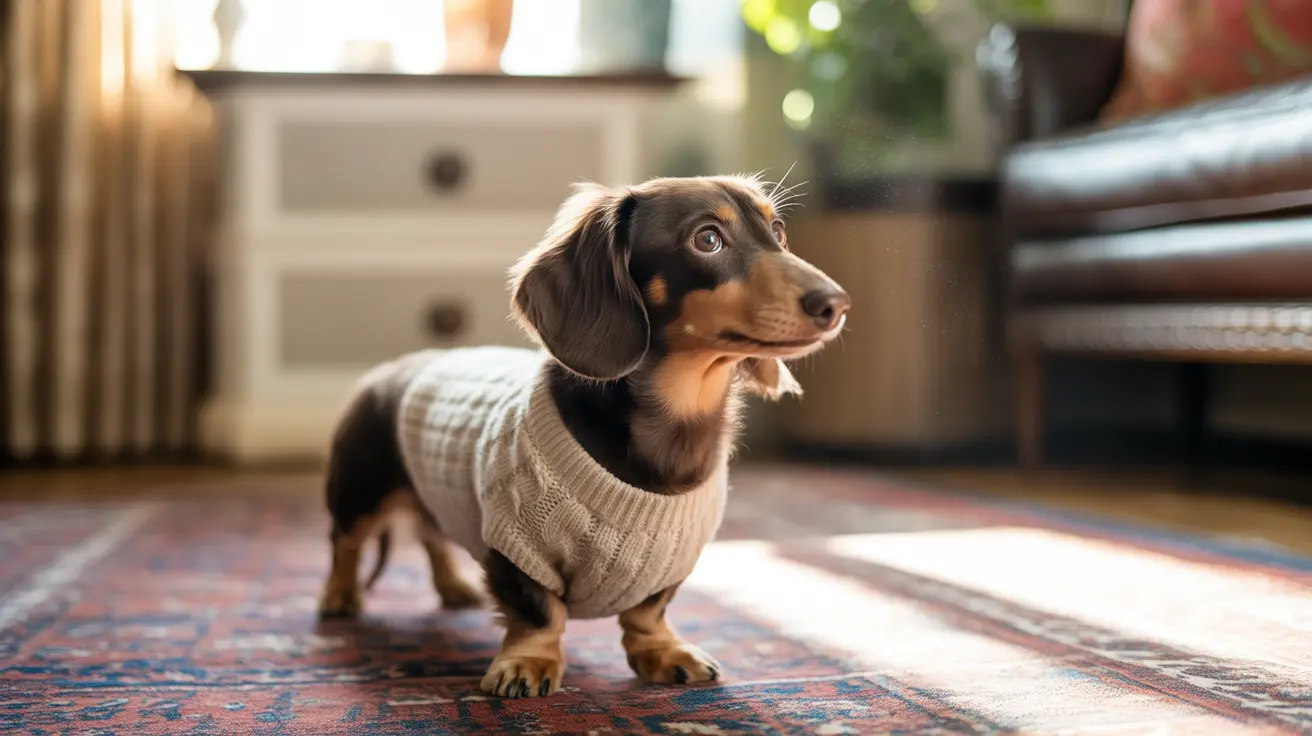If you're a Dachshund owner, you've likely noticed your furry friend trembling or shaking from time to time. This common behavior in Dachshunds can range from completely normal to potentially concerning, depending on the underlying cause. Understanding why Dachshunds shake is crucial for ensuring your pet's well-being and knowing when to seek veterinary care.
In this comprehensive guide, we'll explore the various reasons behind your Dachshund's shaking behavior and provide expert insights on how to address each situation appropriately. From environmental factors to medical conditions, we'll help you better understand your four-legged companion's needs.
Common Causes of Shaking in Dachshunds
Temperature Sensitivity
Dachshunds are particularly susceptible to cold temperatures due to their small size and short legs. Their proximity to the ground and relatively thin coat make them vulnerable to chilly conditions, especially when temperatures drop below 45°F. Many Dachshunds will shake as a natural response to stay warm.
Emotional Responses
Dachshunds are known for their sensitive nature, and shaking often occurs as a response to various emotional states:
- Excitement during playtime or when greeting family members
- Anxiety triggered by loud noises or unfamiliar situations
- Fear during thunderstorms or fireworks
- Stress when separated from their owners
Medical Conditions
Sometimes, shaking can indicate underlying health issues that require attention:
- Hypoglycemia (low blood sugar)
- Neurological disorders
- Pain or discomfort from injury or illness
- Gastrointestinal problems
- Age-related tremors in senior dogs
Identifying the Cause of Your Dachshund's Shaking
Normal vs. Concerning Tremors
Normal shaking typically occurs in specific situations and resolves quickly. Your Dachshund may shake when:
- Getting up from sleep
- During exciting moments
- In response to temporary environmental changes
- After getting wet
However, concerning tremors often persist and may be accompanied by other symptoms such as:
- Loss of appetite
- Lethargy
- Difficulty walking
- Vomiting or diarrhea
- Changes in behavior
Prevention and Management Strategies
Environmental Control
Keep your Dachshund comfortable by:
- Maintaining a consistent indoor temperature
- Providing warm bedding and cozy spaces
- Using properly fitted sweaters or coats during cold weather
- Creating a calm environment during stressful events
Behavioral Support
Help reduce anxiety-related shaking through:
- Regular exercise and mental stimulation
- Positive reinforcement training
- Establishing consistent routines
- Creating safe spaces during triggering events
When to Seek Veterinary Care
Contact your veterinarian immediately if your Dachshund's shaking:
- Persists for an extended period
- Is accompanied by other concerning symptoms
- Appears suddenly without an obvious cause
- Interferes with normal activities
Frequently Asked Questions
Why do Dachshunds shake when they are cold, and how can I keep my dog warm?
Dachshunds shake when cold due to their small size and short legs. Keep them warm with proper indoor heating, warm bedding, and appropriate clothing for outdoor activities. Limit exposure to cold temperatures and always provide a warm, dry place to rest.
What are the common signs that my Dachshund is shaking due to anxiety or fear?
Anxiety-related shaking often comes with hiding, tucked tail, pinned-back ears, and clingy behavior. Your Dachshund may also pant excessively or show signs of restlessness during stressful situations.
How can I tell if my Dachshund's shaking is from excitement or a medical problem?
Excitement shaking typically occurs during specific events and subsides quickly. Medical issues usually involve persistent shaking accompanied by other symptoms like lethargy, loss of appetite, or changes in behavior.
When should I be worried about my Dachshund's shaking and seek veterinary care?
Seek immediate veterinary attention if shaking is accompanied by weakness, disorientation, vomiting, or difficulty walking. Also consult a vet if the shaking is persistent or occurs without an obvious cause.
What are effective ways to help reduce stress-related shaking in Dachshunds during storms or loud noises?
Create a safe space with sound barriers, use calming music or white noise, provide comfort items like favorite toys, and consider anxiety wraps or natural calming aids recommended by your veterinarian.
Remember that while occasional shaking is normal for Dachshunds, understanding the underlying cause is key to ensuring your pet's health and happiness. By staying attentive to your dog's behavior and environment, you can better address their needs and know when professional help is necessary.






